Part Two: The Basics, and the Basic Problem
This is Part Two of a conversation between our Director of Impact and Equity Rozella Kennedy and our Director of US Health Kim Langenhahn on US healthcare in our “post-pandemic” moment: the legacy challenges, the current tragic clashes around untreated mental health episodes in public spaces, as well as the current wave of innovation and opportunity that might, if leveraged and supported, help us move towards equitable, quality healthcare more broadly for more people living in the United States.
Part One of this conversation serves as a wide-ranging exploration of the overarching impact that the mixed nature of the US health insurance system, which is comprised of a combination of private, public, nonprofit, and for-profit entities, has on our society and overall well-being. This rather fragmented approach to health insurance, and subsequently to the provision of care, combined with the fact that the profit motive is woven into most aspects of the US system, means that people—especially the most vulnerable—are often left behind. For example, the recent expiration of protections put in place during the pandemic public health emergency means that millions of people may lose Medicaid coverage, either due to administrative reasons or because they no longer qualify for the program—and this anticipated loss of coverage will disproportionately impact Black and Hispanic beneficiaries. Click here to read Part One.
Unfairness At a Breaking Point
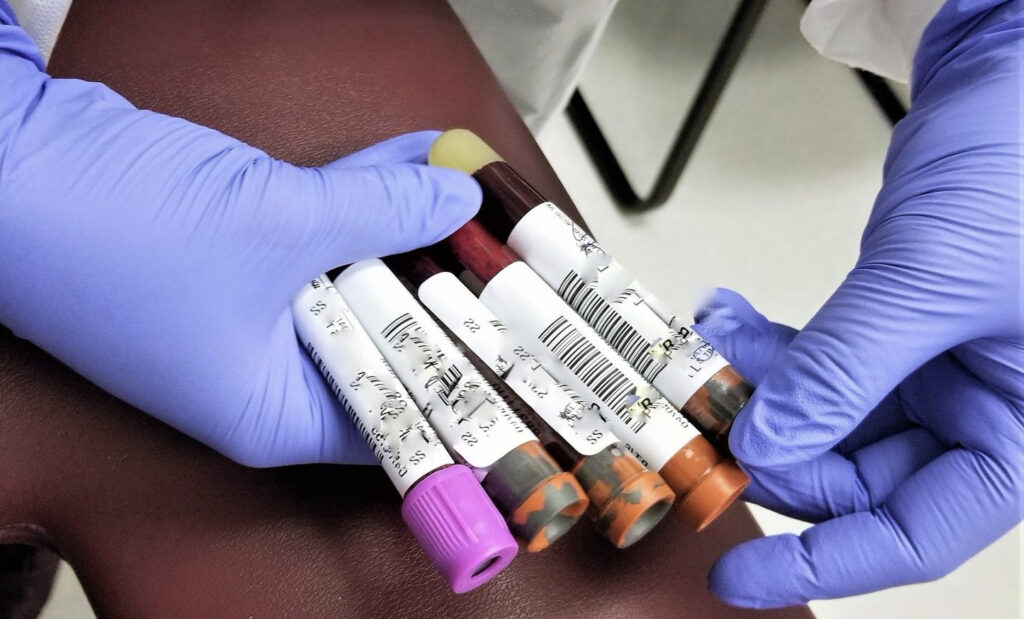
Rozella Kennedy: We took a break in the conversation at a point where I was feeling very heated about what almost feels like a “gotcha” for some folks to access healthcare entitlements like Medicaid. I hate to realize it really comes down to the ability to correctly execute paperwork!
Kim Langenhahn: It does become largely an issue of time, paperwork, and resource and knowledge constraints for far too many people. Just imagine if the next time they show up at a doctor’s office they risk being told, “You actually can’t see the doctor today because you didn’t fill out this form or you didn’t fill it out appropriately or in the right time frame.”
RK: Goodness! The NY Times recently ran a long feature article about the treacherous tangle of paperwork and poor public health outcomes. It depicted the healthcare access challenges of indigenous people in Colombia, South America. But we literally are not much better off, for some communities!
KL: I want to say to the healthcare conglomerates and the government: I understand you’re running a large system. But at the end of the day, someone’s access to care should not depend on filling out a form properly.
RK: Doctors take a Hippocratic Oath, for heaven’s sake! This is actually just heartbreaking to consider. And since we are in this very honest and stark phase of our conversation, let’s add one more tragic health equity factor: the dearth of provision and stigma around mental health.
Two incidents made the national news about the deadly clash of mentally instable people and so-called vigilante citizens. One was the street performer in the New York subway Jordan Neeley, and the other that has haunted me is the death of Banco Brown, trans activist who went into a San Francisco Walgreens attempting to steal food and was shot to death by a private security guard.
Now, I’m going to connect the dots here, from the point of view of equity and justice. These two Black men were hungry, they were desperate, they were distressed, they seemingly were having a psychotic breakdown moment. And they are now dead. Ours should not be a society that punishes our most desolate.
I hate to think of young Black bodies once again becoming martyrs for a cause, but maybe public awareness is starting to shift, because this is just so never-ending and sorrowful and wrong.
There has been so much outrage and compassion for these two people in society. It felt to me like finally more of the public are saying, “wait, this system isn’t serving people, and our mental health crisis should be treated as a health issue, not one of criminality.”
KL: Public health absolutely encompasses mental health, yes.
RK: And if we talk about narrative for a moment, it’s not just the “homelessness” story we have become used to: say, the returning veteran suffering with PTSD and falling into despair, or someone who escaped a violent situation and can’t get into Section 8 housing, or a person who lost everything due to illness or divorce or a death, or a SGM (sexual and gender minority) youth whose family kicked them out of the house—you know, these are the stories we’ve somewhat gotten used to hearing about homelessness and particularly episodes of people suffering mental health breakdowns in plain view. That’s horrendous enough in our society.
But in some circles, there is a growing awareness that people become marginalized and imperiled not only because of circumstances (usually beyond their control), but also because of systems. Folks are saying, “You know, we’re going to acknowledge how epigenetic trauma creates depression, anxiety, and other forms of mental illness. We’re going to see that centuries of actions have led to deep, deep despair and the need for repair…
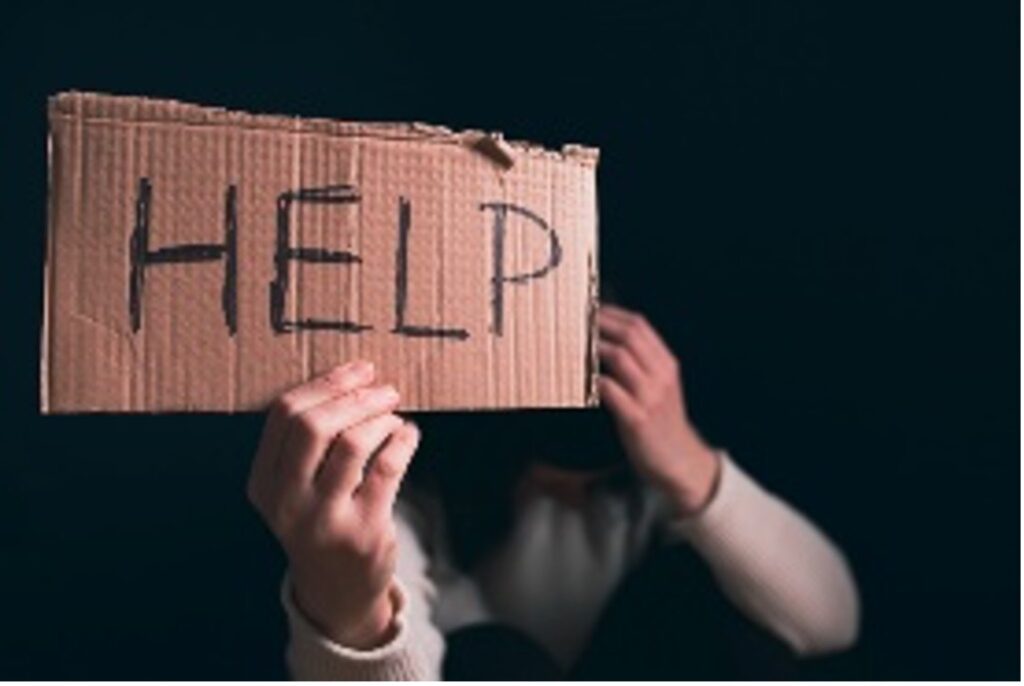
“We’re gonna amplify the connections between limited or poor healthcare; the built environment and heat islands; historic redlining and Jim Crow-era economic immobility; the war on drugs and how AIDS, the pandemic, and fentanyl have disproportionately targeted ‘the wretched’ of our earth,” to reference Frantz Fanon, if I may!
It’s encouraging to see people taking a bolder attitude towards acknowledging that mental health and machismo are not the same thing, and that the stigma needs to be eradicated. Folks need help. People are demanding better.
A Few Ways Out of the Morass
RK: So, now that I’ve gotten that off my chest, what should be do? What can we, as people do, to help fix this broken healthcare system?
KL: I would truly say at the individual level the most powerful thing we can do is educate, advocate, and vote. We all have a voice, and we need to use ours to make sure we have people in office who support the idea that quality healthcare is a human right. I mean this not only at the federal level by the Centers for Medicare and Medicaid Services.
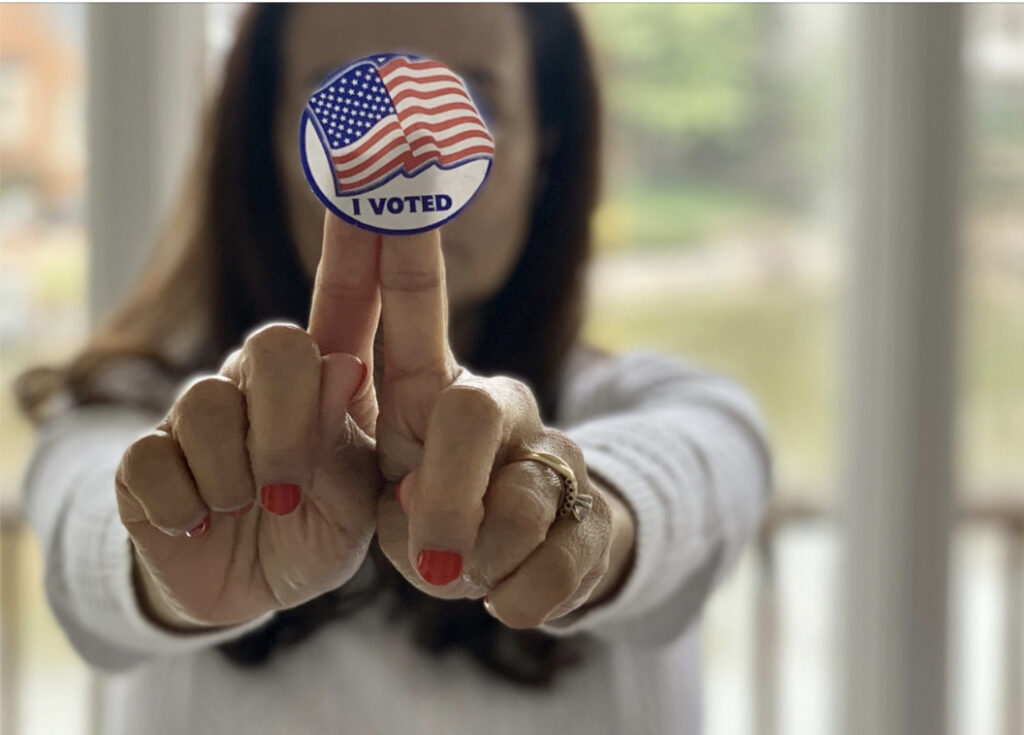
To be honest, the right political leadership is even more significant at the municipal level and the state level because that’s where Medicaid policy is being set for the most part—these are the entities that are actually administering the state Medicaid programs. And as individuals, we need to advocate for the causes and the politicians that represent what we believe in. We have to do all we can to get them in office.
RK: Oftentimes even people who are relatively politically engaged don’t vote in all their local council elections…
KL: … and that’s where many of the most significant policies for people’s lived experience, from healthcare to schools to trash collection and local taxes are being implemented.
Another thing: the local forum is an important laboratory or testing ground for politicians, PACs (Political Action Committees) and major campaign donors, and advocacy groups. By this I mean, these stakeholders often have eyes on state-level offices, so to get a sense of how they act locally is very important in this two-way street of electoral politics; how do they intend to move “upstream” as it were?
Reminding us all to stay engaged, especially locally, is good advice because so much of electoral politics and voting at the state and certainly federal level has also devolved into a popularity contest or beauty pageant. It’s off-putting, and we are all so tired of so much of it. But we have to stay focused, right? An informed and engaged populace has a lot of power to shift many kinds of inequities.
KL: If we stay attentive and active.
RK: I am reminded of the shock many of us felt when Roe was struck down last year. Mostly to steel myself, I jumped on a Zoom with two of our colleagues and we held a video chat in which we were able to share our feelings and recall many of the positive reproductive health work Camber has helped shore up for our clients over the years, but also we cited a bunch of resources: nonprofits and other groups that people could get involved in and support as donors, volunteers, advocates. Are there some innovative organizations you’d like our readers to know about that are advocating for access to quality, equitable healthcare?
KL: Yes, let’s share a few here. (See “resources” at bottom of this post.)
Facing Facts and Keeping Faith
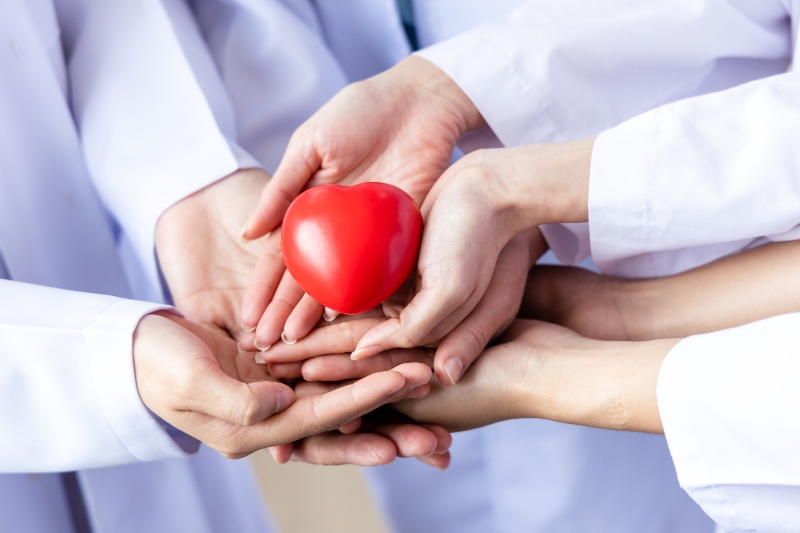
RK: Thank you! I think it’s wonderful that Camber can be this bridge between thought-leadership and strategy and encouragement for the people.
Because these issues of health equity are so all-encompassing, they touch upon everything, and it gets overwhelming and can almost feel debilitating. But speaking of encouragement, let me ask you from a policy or thought leadership perspective, what do you see that is encouraging in this moment, if anything at all?
KL: Yes, I do think there are things to be encouraged by. Over the last couple of years, a tiny silver lining that came out of the pandemic is that you had more and more people really start to authentically grapple with, and truly acknowledge, just how many existing systems in our country prevent people from living full lives.
RK: Can you say more?
KL: It used to feel much more like lip service. But I think there is a core group of people that are more empowered to try and upend some of these inequitable systems and there are more people who are just now coming to terms with the reality of how skewed and broken so much of this is.
I’m seeing a greater recognition of the power structures and the racist histories and how those factors conjoin to impact people, historically as well as right now.
RK: This hearkens back to what we were saying about health inequity not being entirely a Black/white issue…
KL: This is true—though we cannot deny that redlining and workforce discrimination have played enormous roles in economic inequity and health outcomes disparity, over generations.
RK: Enslaved Black people were legally not allowed to learn to read, marry whom they wanted, and in many instances, didn’t even have a “real” name. We cannot of course, discount the enormous historic harms done to Asian people through legislated discrimination and internment, or to our Indigenous brothers and sisters, whose lands and lives were literally stolen by colonialism. It’s a very bad legacy.
KL: When you look at the data around health outcomes, the throughlines are clear. The neighborhoods and zip codes with the worse health outcomes have a higher propensity to be non-white, but sadly, there are also some universal constants that transcend racial lines and just simply come back to poverty. Fewer economic resources, larger proportions of major chronic health issues.
RK: A generalized need for a social safety net.
KL: And because some elected officials are finally recognizing that their constituents’ needs are not being met, there is a glimmer of good news. In the last couple of years, more states have begun to expand or consider expanding Medicaid under the Affordable Care Act.
RK: Thank God(dess)!
KL: We now have 40 states plus DC with expanded Medicaid coverage. So yes, there are still ten states that need to do so. But there is a little more momentum.
RK: Expanding Medicaid is not a panacea, but it is a huge step in the right direction.
KL: I was looking at some of the recent reporting around maternal health and especially mortality rates for Black mothers, and it found that there are some genetic drivers for the high Black maternal mortality rates, but at the end of the day a lot of that excessive mortality results from lack of insurance and lack of access to care.
There Really is No “Us” and “Them”
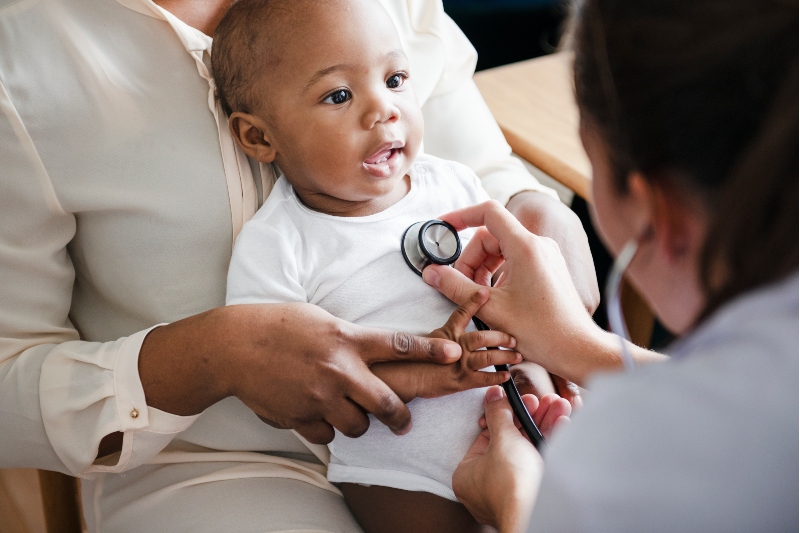
RK: I often say if Serena Williams and Beyoncé could not access considerate healthcare during their pregnancies, what hope do the rest of us have?
KL: Again, this is all part of the structural problem we’ve been discussing. While maternal mortality rates have increased pretty steadily over the last two decades, those increases have been smaller in states that have expanded Medicaid, with greatest impact being on Black mothers. It largely comes down to simply having access to better care, or care at all.
RK: I don’t like to put it in these terms exactly, but one could zoom way out, with a historical lens, and surmise one of the positive outcomes of the George Floyd moment is the awakening around racism and normalizing white comfort and prosperity to the detriment of people of color, just across so many systems. The situation may not be as stark as outright “white supremacy,” but it was a sense of erasure, ignoring, making people feel like they are “less,” and expecting even less than that.
And we are shaking off this general sense of “laissez faire” among the populace, writ large. I often say that we have been lulled into consumerist complacency over the past six or seven decades: If you could eat a fun dinner and your favorite show is on TV, you’re good—and there’s nothing else in the world you need to worry about. That became sort of the prevailing way of American life in the 60s, 70s, 80s, 90s early aughts, right? And now people are saying “no, I don’t want to live in a society where so many of my sisters and brothers are suffering.”
The journalist and social commentator Annie Lowrey speaks of something she calls “the time tax,” this fact that if you’re a privileged person, you can hire a PA or pay for an app to take care of all your nonsense paperwork, but for most of the people, and it gets worse the less economic agency you have, it’s a nightmare.
KL: Not to mention if you’re higher up the privilege ladder, your paperwork is sometimes less complicated, which is a bit counterintuitive.
RK: How about that? Look at something as essential as signing up for food stamps. In some states it’s an obstacle course. Hunger and food are health issues too.
KL: They really are.
RK: And people who are outside of the sphere of high privilege, who, as you said, don’t have autonomy over their day, it can be a struggle to even access these benefits, one of which almost everyone in the country agrees is important and positive—food assistance.
Food is Healthcare
RK: Kim, can you talk a little bit about food and hunger and how they correlate to the health crisis in this country at the systemic level?
KL: Isn’t it interesting how many tentacles there are to what constitutes “health”? Yes, absolutely, let’s talk about food and hunger to wrap up our conversation.
Let’s start with young children and health and social outcomes related to food and nutrition. So many young kids are hungry, either because they don’t have access to as much food as they need, or the food they have access to is calorie dense but nutrient poor. These young people face so many challenges as a result of malnutrition—they have a harder time paying attention in school and greater difficulty understanding the material, they have more behavioral issues in school, they are more likely to be pulled out of class or get a detention. They may not even have the energy to play, which is an important part of childhood development.

RK: A stunning book about this I read described how much bias there is against Black girls in this particular area. It’s striking.
KL: Yes, it’s disgraceful. And you know, Rozie, no matter who the kid is, they end up propelled into a negative spiral. They miss learning time because they are being subjected to carceral treatment. Or even if they are in still in the classroom, they are diminished: when you’re hungry, you can’t pay attention, especially as a child.
RK: Even at very young ages, the hungry kid is already disadvantaged compared to the well-fed one.
KL: And those discrepancies and disadvantages persist throughout the rest of that child’s life. It will be nearly impossible for them to catch up academically to their well-fed peers.
They are generally always going to be behind, less likely to graduate high school, less likely to pursue college. Also, they are less likely to receive technical training if they want to go the trades route. This leads to a population that is less likely to attain solid employment, less likely to access stable housing.
RK: If this child grows to adulthood and remains in a position where it is difficult to feed themselves well, what happens when they have children? The cycle repeats itself for another generation.
KL: Glance away from children for a minute and think about adults in general in our society. We have so many food deserts and food swamps: where there is a lack of access to healthy, fresh, nutrient dense food. Or for some, there is not the time to go and purchase healthy food and prepare a meal at home.
RK: Yes, those food-box apps are so alluring—and very few people I know, including myself, would fit that in their budget, even if they could. Not as a sustainable solution, maybe a novelty.
KL: So, when you don’t have the time and the resources, you know what? You’re eating fast food. And this leads to so much of the population dealing with the lifestyle diseases: higher rates of diabetes, high blood pressure, all of these comorbidities that then make it nearly impossible for them to live healthy lives.
RK: It starts to feel pre-destined.
Connecting the Dots and Finding Hope
KL: As we’ve said, more and more people are connecting the dots.
RK: Back in the mid-aughts, I served as the coordinator of the New Mexico Hunger Task Force when I was living in Santa Fe. And at the time, New Mexico was the Number Two state in the nation in terms of food insecurity. Our goal was to get to #5, and I think they did do it.
Be that as it may, during that time, I worked with several people in public health as well as agriculture and education. And the effort was intersectional before that was a common term, and it was grassroots and communal. One friend who is at UNM School of Medicine as an anthropologist, actually, is engaging foodways and culture, to excite Hispanic (in that region, many people prefer this term to Latino) women—some immigrant or recent arrivals, others going back ten generations to when New Mexico was old Mexico—around food, health, resilience, and pride. They are using sisterhood and mutual aid as interesting ways to weave it together. Cultural pride in eating the food of their ancestors.
KL: That’s absolutely a positive approach.
RK: Can I say one more thing? I see this progressive attitude playing out in the Black community too with this neo-vegan hipster moment.
I think pop culture can be such a mover; I’m thinking of people like Stephen Satterfield and his Whetstone publishing entity and streaming show “High on the Hog,” I see it a lot with Black Veganism too. It’s interesting because they are connecting food to health as well; getting away from sodium, fried food, processed “foodstuffs.”
We are seeing this cultural shift in the Latinx and Asian communities too, as well as in African and Caribbean food culture: after generations of high-sodium spices and “flavor enhancers” marketed as culturally relevant, folks are looking at the health outcomes and saying “enough.” Give us healthy food, pure food, stop selling us poison. It’s related to climate and environment as well, of course.
I know that was quite a side-road I took us on there! But it feels related. That’s one thing I love about working at Camber, we really lean into the sectoral interconnections when it comes to equity and well-being.
KL: It is something to be proud of. I’d say a good thing that came out of the pandemic was that more people began to understand how interrelated everything is. You cannot be a healthy person if you don’t have access to food and safe affordable housing and a minimum standard of living. You just can’t. But you also can’t excel in school or life if you don’t have access to healthcare. So, it’s all related.
And you most certainly cannot be your healthiest self when living within social and healthcare systems built around bias and discrimination. For example, the telomeres that cap the ends of chromosomes and help protect the genome from degradation are shorter in marginalized populations, leading to premature biological aging and the early onset of many chronic diseases.
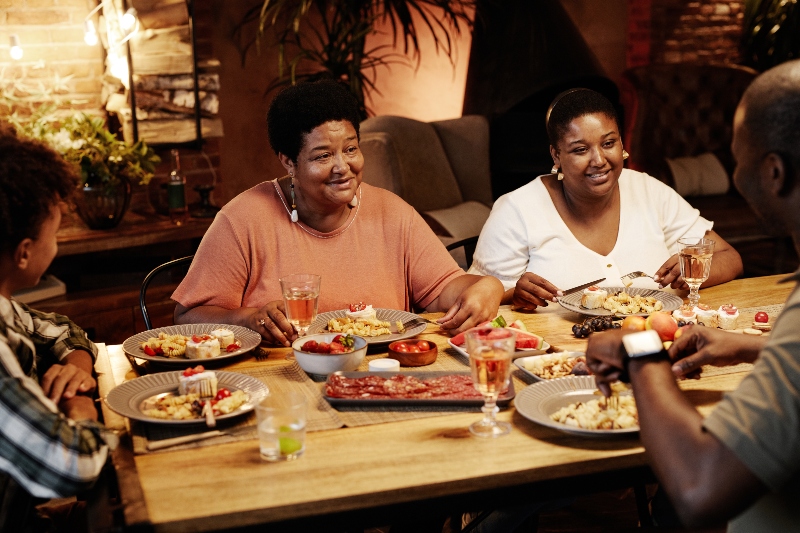
In fact, Rozie, if we just focus on the medical side of healthcare, we are missing the majority of the drivers that actually dictate whether you are able to lead a healthy, fulfilled life—those so-called external social determinants of health often impact one’s overall state much more than the classic medical treatments and doctor’s visits we associated with “healthcare”.
More and more people and organizations are recognizing this. Even at governmental levels.
I’ll leave you with this, which is also encouraging: CMS, or the Centers for Medicare & Medicaid Services, has created some new coding opportunities within Medicare and Medicaid to try to help provide guidance and reimbursement for access to things like transportation to the grocery store.
RK: Kim, that’s really great! The old hunger coordinator in me is cheering this! In New Mexico, some folks had to go sixty miles just to get to the big box store, so they got most of their “food” at convenience stores and gas stations…
KL: Another exciting possibility around innovation is the fact that entrepreneurs can often work faster than government policy can be designed and implemented, so we are seeing innovative entrepreneurs and nonprofits trying to address things like food scarcity and other social determinants of health.
They’re asking questions like: “How do you innovate the care model to make it more equitable to increase access and help to address some of those disparities that are baked into the system?”
RK: Woah, they might actually be making capitalism work for the betterment of the populace, and not just the financial elite!
KL: That’s right. Capitalism is still today’s system, but if used effectively, it can be part of the solution.
RK: Basically, it’s just a question of “don’t be greedy.”
KL: Basically, yes.
Resources
- United States of Care – Building a Better Health Care System
- Alliance for Health Policy – Join the Conversation (allhealthpolicy.org)
- CityHealth – Every person, in every city, deserves a healthy life
- Trust for America’s Health (tfah.org)
- Home – HealthTech 4 Medicaid (ht4m.org)
- Grantmakers In Health – Better health for all through better philanthropy (gih.org)
- Lutheran Services in America
- Health Care Access Maryland – Making Maryland a Better Place to Live
Kim Langenhahn draws on more than 15 years of consulting, operational, and startup experience in the domestic and international health and nonprofit sectors to help organizations navigate complex issues, operate more effectively, and deliver greater impact. During the course of her career, Kim has helped numerous healthcare organizations tackle a variety of strategic challenges such as scaling Terrapin Pharmacy’s remote medication adherence system, launching a MENA-focused healthcare incubator, devising system-wide strategy for the Saudi Arabian Ministry of Health as part of PwC’s consulting practice, and developing a market forecast for a pharmaceutical company alongside her L.E.K. Consulting colleagues. She is also the Cofounder of a small social enterprise that she runs with her family
Kim earned a Master of Business Administration and a Master of Public Policy from the University of Chicago as well as a Master of Science in Quantitative Management and a Bachelor of Arts from Duke University. An avid traveler, reader, bread baker, ice cream churner, and (aspiring) cheese maker, she also enjoys helping her husband tend to their rooftop garden and vermiculture operation. She currently resides in Washington, D.C.
As Camber Collective’s Director of Impact and Equity Rozella Kennedy helps direct the firm’s internal Impact, Equity, and Belonging work as well as the external practice. Her theory of impact seeks to leverage equitable values to influence and impact the humanitarian, development, philanthropic, and social impact sectors. The long focus is to expand awareness and practice in local and global post-colonial contexts. Rozella is also the creator of Brave Sis Project, a lifestyle brand using narrative and social engagement to uplift BIPOC women in U.S. history as a tool for learning, growth, celebration, and equity allyship; her book “Our Brave Foremothers: Celebrating 100 Black, Brown, Asian, and Indigenous Women Who Changed the Course of History” was published by Workman Press in Spring, 2023.
